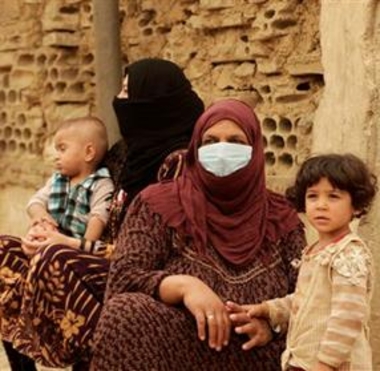Rights group criticizes refugee response, praises LGBT gains

Istanbul (AP) — Western governments fearful of terror attacks and the potential threat posed by refugees are adopting counterproductive policies in the name of security, Human Rights Watch said in its world report Wednesday.
HRW executive director Kenneth Roth said "fear of being killed or starved" drove millions of people to flee Syria and other conflict zones in 2015, while fear of "what that influx of asylum-seekers would mean, particularly in Europe, led many governments to try to raise the gates" to block refugees.
He chided Europe and the United States for allowing fear of terrorism — particularly since November's Paris attacks — to give rise to "blatant Islamophobia and shameless demonizing of refugees" which alienates the very communities that could help in counterterrorism efforts.
"As a counterterrorism measure, Islamophobia is the last thing you would want," he said.
The organization unveiled its annual report reviewing human rights practices around the world in Istanbul. Turkey is home to 2.2 million Syrian refugees and the main departure point for migrants headed to Europe.
Roth urged Turkey, which has been promised $3 billion by the European Union in aid to prevent the outflow of migrants, to avoid measures such as turning refugees back to Syria or becoming party to any EU effort "to deny the basic rights of people to flee persecution."
The estimated 1 million asylum seekers who reached Europe by sea in 2015 would represent only 0.20 percent of the European Union population if member countries shared in resettlement, he said.
"'Creating a safe and orderly way for refugees to make their way to Europe would reduce lives lost at sea while helping immigration officials to screen out security risks," Roth said.
Policy makers in the U.S. and Europe, the report said, are using the terrorist threat as an opportunity to expand law-enforcement powers, including mass surveillance.
Meanwhile, Russia and China have embarked on the largest crackdown on civil society in decades, according to the 659-page report reviewing more than 90 countries. It noted similar trends in Turkey, Kenya, Sudan, South Africa and Israel.
The report said the group is deeply concerned that President Recep Tayyip Erdogan and his Justice and Development Party (AKP) are "trying to undermine any institution that is capable of holding it into account," said Roth, pointing to a crackdown on critical media, political opponents as well as the erosion of the judiciary.
Senior HRW Turkey researcher Emma Sinclair-Webb said Turkey is witnessing the "most serious deterioration of human rights" since the AKP came to power in 2002
Sinclair-Webb also raised concerns over civilian casualties amid escalating violence following the collapse of the peace process between Ankara and the outlawed Kurdistan Worker's Party, or PKK.
Human Rights Watch celebrated gains for the lesbian, gay, bisexual and transgender communities in 2015 - including the legalization of same-sex marriage in Ireland, Mexico, and the United States. Mozambique decriminalized homosexuality.
By Dominique Soguel, Associated Press. Copyright 2016 The Associated Press. All rights reserved. This material may not be published, broadcast, rewritten or redistributed.
The Gayly – January 27, 2016 @ 10 a.m.





